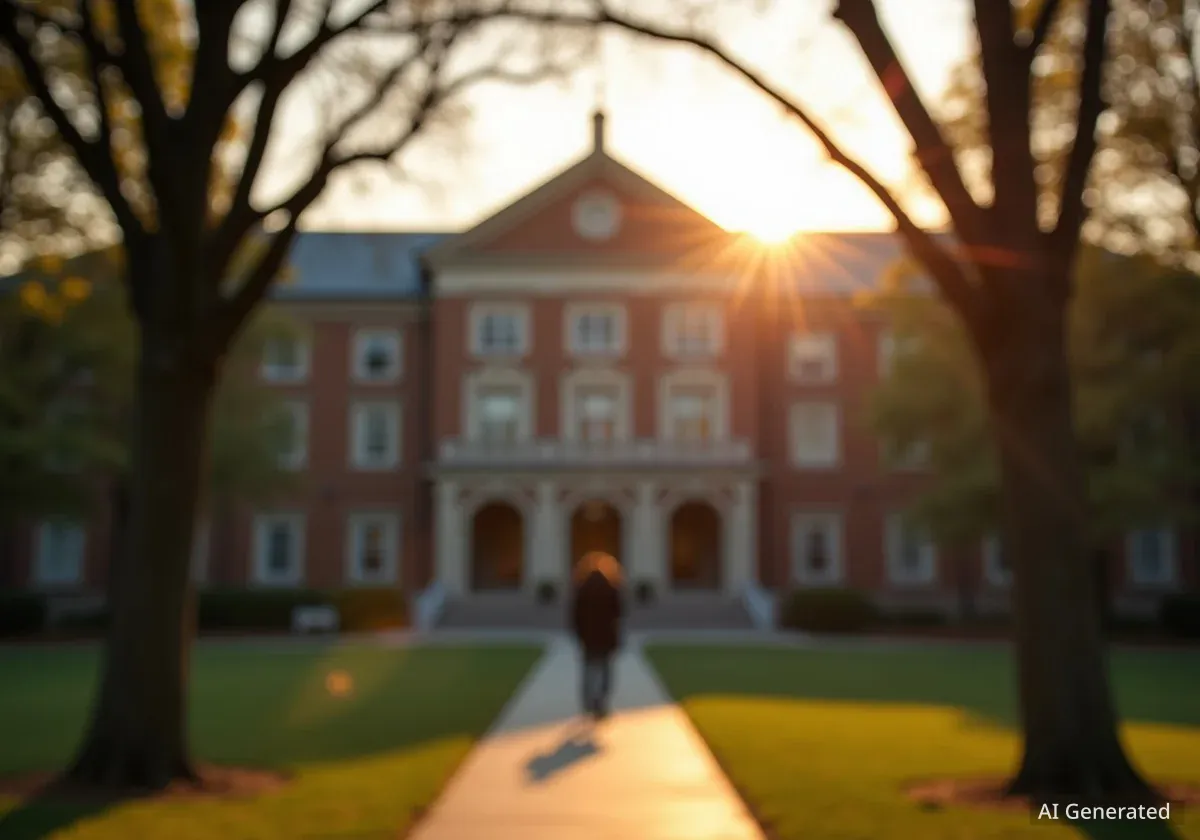A former Ball State University employee has filed a lawsuit against the university's president, Geoffrey Mearns, alleging her First Amendment rights were violated. Suzanne Swierc, the former director of health promotion and advocacy, was terminated after making a private Facebook post about the death of conservative activist Charlie Kirk.
Represented by the Indiana American Civil Liberties Union (ACLU), Swierc is seeking damages and to have the termination removed from her employment record. The university has stated it does not comment on active litigation.
Key Takeaways
- Suzanne Swierc, a former Ball State staff member, is suing university president Geoffrey Mearns for wrongful termination.
- The lawsuit claims her firing over a private Facebook post violates her First Amendment right to free speech.
- The post, visible only to friends, commented on the death of conservative activist Charlie Kirk.
- A screenshot of the post was shared online, leading to harassment and threats against Swierc before her dismissal.
Details of the Lawsuit
The legal action centers on Suzanne Swierc's dismissal from her position at Ball State University. The lawsuit, filed on her behalf by the Indiana ACLU, names President Geoffrey Mearns as the defendant and argues that her termination was an unconstitutional infringement on her right to free speech.
During a press conference held via Zoom, Swierc stated, "I believe, along with every other person in this country, I have First Amendment rights." She confirmed that she does not regret the content of her post and stands by her statements.
The lawsuit is not seeking her reinstatement at the university. Stevie Pactor, an attorney with the ACLU, explained that Swierc "doesn't feel like Ball State is a place she can work after this." Instead, the legal action requests financial damages and the formal expungement of the firing from her professional record.
The Facebook Post and Its Aftermath
The controversy began with a post Swierc made on her personal Facebook account following the death of Charlie Kirk, the founder of the conservative organization Turning Point USA. Kirk was a prominent activist who was shot and killed at a public event in Utah.
Swierc's post began, "Let me be clear: if you think Charlie Kirk was a wonderful person, we can't be friends." She also referred to the shooting as a "tragedy."
"Charlie Kirk's death is a reflection of the violence, fear, and hatred he sowed. It does not excuse his death, AND it's a sad truth," the post continued.
According to the lawsuit, the post's privacy settings were configured so that only her Facebook friends could view it. Her profile did not list her employer or other identifying professional information.
How the Private Post Became Public
The lawsuit details that an unknown individual took a screenshot of Swierc's private post. This screenshot was then combined into a graphic with her official photo and title from the Ball State University staff directory. This new image was circulated widely on social media platforms and submitted to the "Eyes on Education Portal," an initiative by Indiana Secretary of State Todd Rokita. The lawsuit states Rokita subsequently shared the graphic on his own social media accounts.
Harassment and Termination
Following the online distribution of the graphic, Swierc began receiving a series of harassing and threatening messages at her home and work. She reported feeling "violated" and filed a police report after one particularly alarming incident.
"Maybe I deserve what Charlie got, is what the person said," Swierc recounted, explaining that a stranger called her cell phone and recited her full name, job title, and home address before making the threat.
On September 15, university officials asked Swierc to attend a meeting with the employee relations department. Just two days later, on September 17, she received a letter from President Mearns informing her that she was fired.
Legal Precedent in Question
The ACLU argues that the legal justification Ball State used for the firing is not applicable to Swierc's case. Attorney Stevie Pactor stated the precedent involved a high school teacher with prior disciplinary warnings who was also Facebook friends with students, factors not present in this situation.
University's Position and Legal Arguments
When asked for a statement, a spokesperson for Ball State University said, "Out of respect for the judicial process, the University does not comment on pending litigation."
The core of the legal challenge rests on the protection of speech for public employees. Pactor emphasized the ACLU's position during the press conference.
"Government employees don't give up their First Amendment rights," Pactor said.
The case will likely examine the boundaries of a public university's ability to regulate the off-duty, private speech of its employees, especially when that speech becomes the subject of public controversy through no action of the employee. The outcome could have significant implications for public sector workers across Indiana and the nation.





